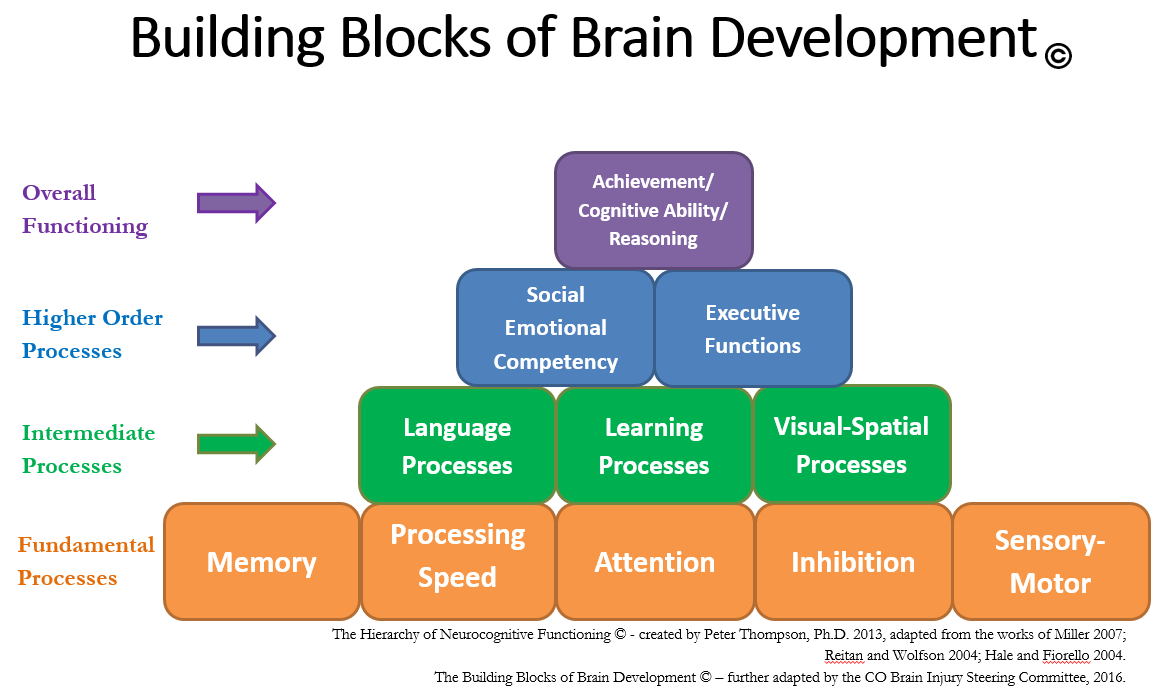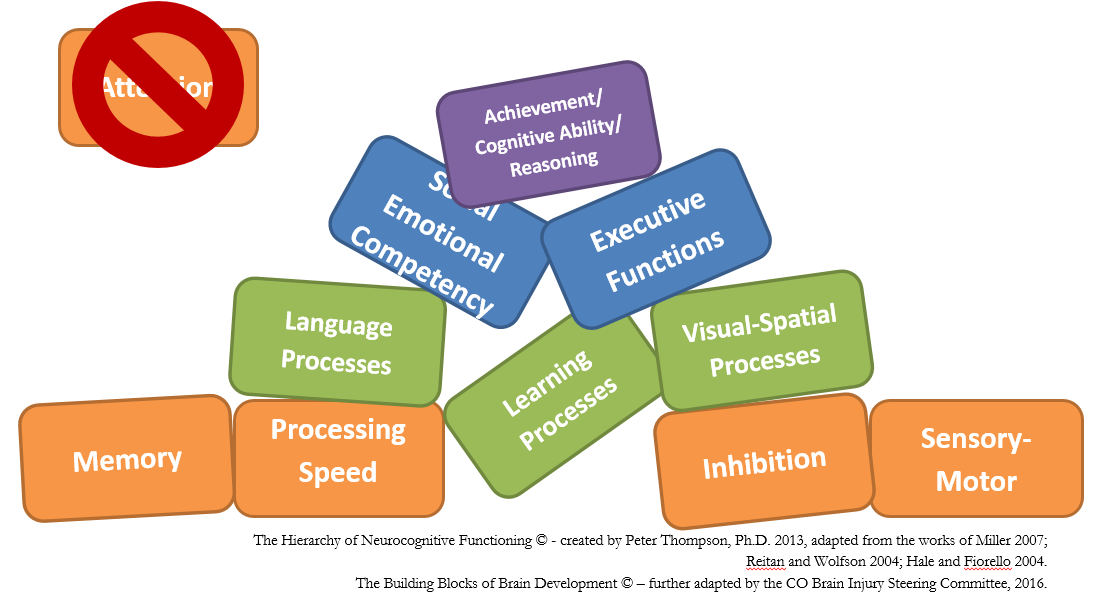You are here
Building Blocks of Brain Development
We have learned a tremendous amount of information in past decades about how the brain functions, however, there is still no one agreed-upon model that truly captures the complexities of this remarkable organ. In an effort to support school-based multidisciplinary teams in completing thorough neuro-educational evaluations that produce rich data for the special education eligibility process, the Colorado Department of Education (CDE) along with the Colorado Brain Injury Steering Committee, applied the most current research on brain function, neuro-anatomy and assessing the various brain processes and developed a user-friendly framework titled, the Building Blocks of Brain Development.
This framework aligns the:
- eligibility criteria for the special education category of Traumatic Brain Injury (TBI), as defined by IDEA,
- definitions of the typical cognitive and behavioral impacts of brain injury,
- formal and informal neuro-educational assessments that can be used in the school setting, and
- strategies and interventions to address the unique needs of students with brain injury.
FIGURE 1
The Building Blocks of Brain Development (see FIGURE 1) explains, in a simplistic manner, the interaction between the more basic or fundamental skills, and the higher-order cognitive skills. This is not an exhaustive list of cognitive functions; rather the building blocks represent the areas most commonly affected by brain injury. The Building Blocks of Brain Development framework is color-coded for ease of use and proceeds from foundational processes (indicated in orange) to more complex functions (indicated in green, blue and purple). At the base of the chart is the orange, fundamental level. These are critical in all learning and behavior; they are also the most sensitive to being impacted by a brain injury.
The intermediate level (as seen in green) depends on the fundamental building blocks in order to develop and become more complex. The higher order thinking skills (as seen in blue) rely on the lower levels to be solidly in place in order to fully develop and be available. And finally our top cognitive processes of overall achievement (as seen in purple) is the peak of functioning. This highest level allows us to operate in our many environments and to be productive citizens – and it is wholly dependent on the three preceding levels being intact and working in concert to produce our desired outcome, which is reasoning and overall functioning.
A brain injury may cause disruption or gaps in one or more building blocks, impacting our learning and behavior, and ultimately our overall achievement. Due to the inter-relatedness and integrated nature of our brains – just one building block that is not functioning well can affect all of the others, as depicted in FIGURE 2.
FIGURE 2
The Building Blocks of Brain Development framework created by the Colorado Department of Education (CDE), along with the Colorado Brain Injury Steering Committee, is a framework for parents, school-based multidisciplinary teams and outside providers to identify, understand and address the effects of brain injuries in students. The framework provides common language and understanding for communication about a student’s level of functioning within the school, home, and community environments. Educators can apply the framework to identify skill deficits through neuro-educational assessment and address those deficits through appropriate educational interventions and supports. Ultimately, all students can benefit from the increased awareness gained from this simple tool about the interaction between brain processes, learning and behavior.
Learn More About the Building Blocks of Brain Development
Video
Explains the Building Blocks of Brain Development
(Closed Captioned, 10:47 min.)
Website
Manual
Article
Questions? Contact:
Jody Dickerson, RN, BSN, MN
Brain Injury Specialist
Phone: (720) 795-2273
Email Jody Dickerson
Having trouble with this webpage?
If you have problems with broken links or accessing the content on this page, please contact the Exceptional Student Services Unit at ESSU@cde.state.co.us. Please copy the URL link for this page into the email when referencing the problem you are experiencing.



Connect With Us




